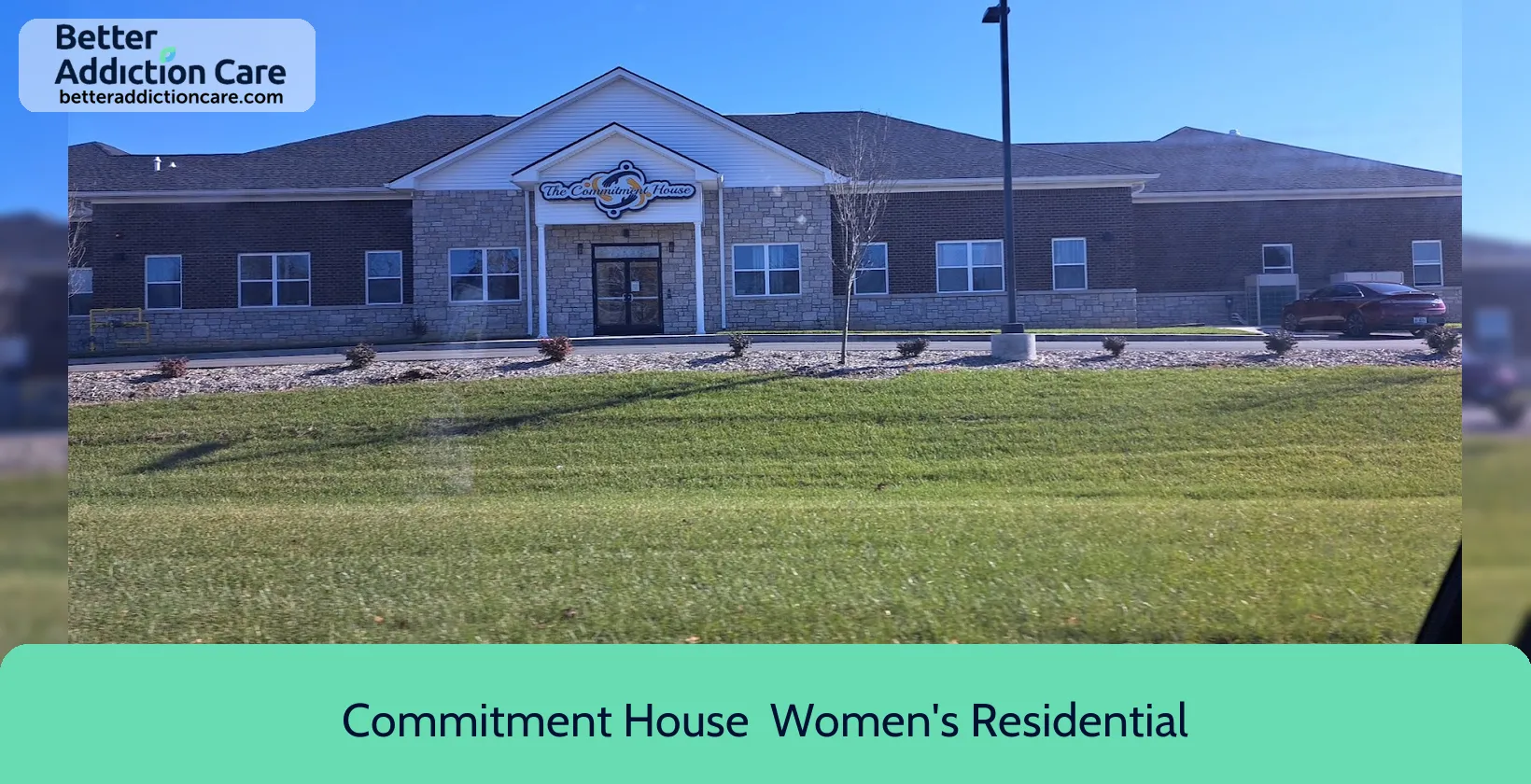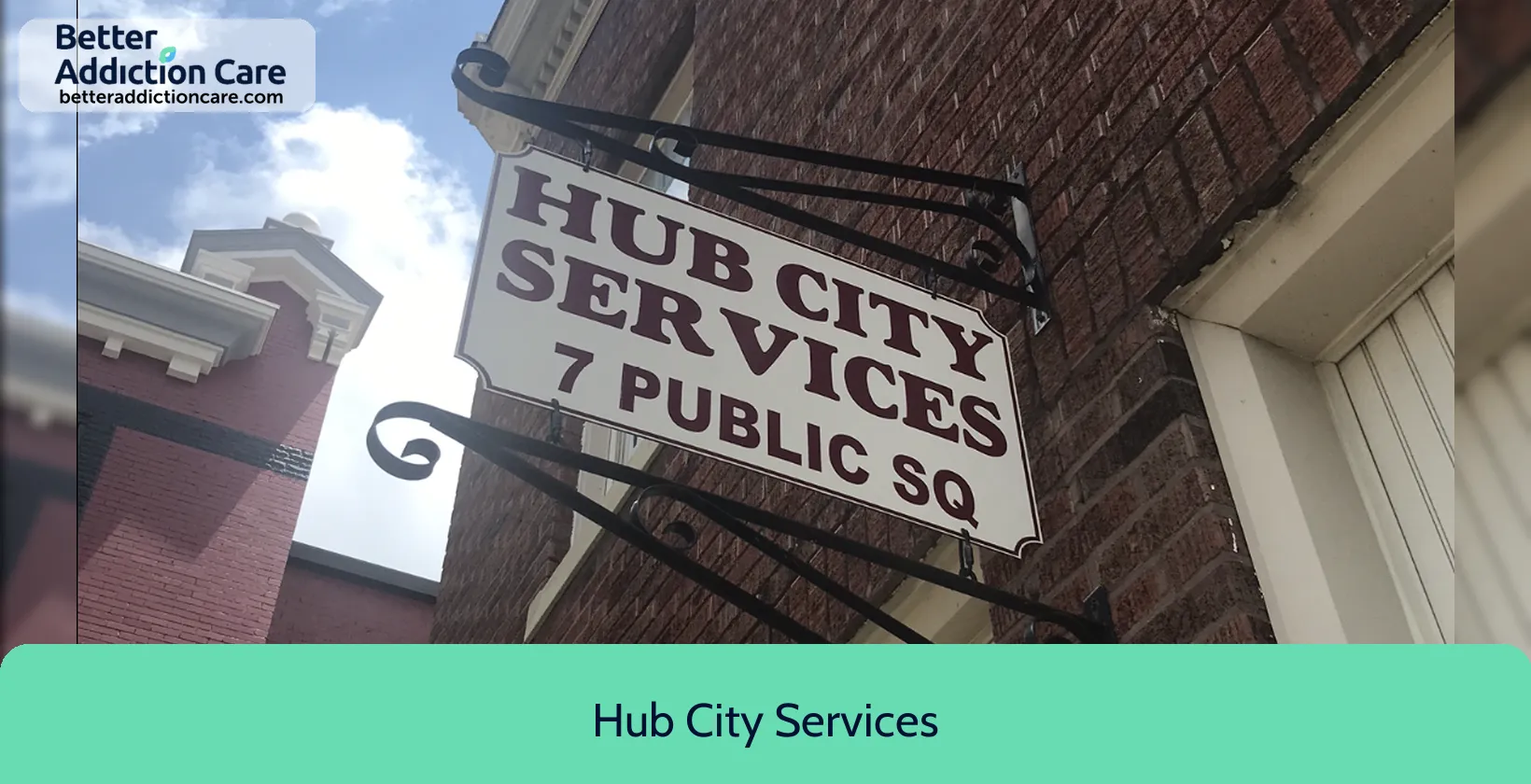Hub City Services
Overview
Hub City Services is an accredited substance abuse treatment center that provides outpatient treatment for men and women between 18 and 65+ years of age. As part of their special programs, Hub City Services To help patients achieve sobriety, Hub City Services provides intake assessments. Afterward, patients receive cognitive behavioral therapy, substance use disorder counseling, and group counseling during treatment. Hub City Services is located in Elizabethtown, Kentucky, providing treatment for people in Hardin County, accepting cash or self-payment.
Hub City Services at a Glance
Payment Options
- Cash or self-payment
Assessments
- Screening for tobacco use
- Comprehensive substance use assessment
- Interim services for clients
- Screening for substance use
- Professional interventionist/educational consultant
Age Groups
- Young adults
- Adults
- Seniors
Ancillary Services
- Case management service
- Specially designed program for DUI/DWI clients
- Social skills development
Highlights About Hub City Services
6.71/10
With an overall rating of 6.71/10, this facility has following balanced range of services. Alcohol Rehabilitation: 8.00/10, Drug Rehab and Detox: 6.00/10, Insurance and Payments: 6.00/10, Treatment Options: 6.85/10.-
Alcohol Rehabilitation 8.00
-
Treatment Options 6.85
-
Drug Rehab and Detox 6.00
-
Insurance and Payments 6.00
Accreditations
State mental health department:
State mental health department accreditation refers to the process of evaluating and certifying the quality and standards of a state's mental health department, ensuring that it provides high-quality services and meets specific criteria for mental health care. The accreditation process is performed by a third-party organization and helps to improve the overall care and treatment of individuals with mental health conditions.
SAMHSA certification for opioid treatment program (OTP):
SAMHSA's Opioid Treatment Programs (OTP) Accreditation is a rigorous recognition process, signaling an OTP's commitment to high-quality care for those with opioid use disorders. It assures patients, families, and the community that the program adheres to evidence-based practices, maintains a safe environment, and employs qualified staff. This accreditation represents a commitment to addressing the opioid epidemic and promoting recovery, symbolizing quality and accountability in opioid addiction treatment.
State department of health:

Government agencies issue State Licenses, granting rehabilitation organizations permission to operate their businesses lawfully within specific geographic regions. The specific licenses needed for legal operation are typically determined by the type of rehabilitation program offered by the facility and its physical location.
Registration: 810051
Treatment At Hub City Services
Treatment Conditions
- Alcoholism
- Substance use treatment
Care Levels
- Outpatient
- Regular outpatient treatment
- Aftercare
Treatment Modalities
- Cognitive behavioral therapy
- Substance use disorder counseling
- Group counseling
- Intervention Services
- Contingency management/motivational incentives
Ancillary Services
Additional Services
- Pharmacotherapies administered during treatment
- Discharge Planning
- Breathalyzer or blood alcohol testing
Get Help Now
Common Questions About Hub City Services
Contact Information
Other Facilities in Elizabethtown

6.65

6.50

6.71

6.74

7.66

7.64

7.30

7.45
DISCLAIMER: The facility name, logo and brand are the property and registered trademarks of Commitment House - Women's Residential, and are being used for identification and informational purposes only. Use of these names, logos and brands shall not imply endorsement. BetterAddictionCare.com is not affiliated with or sponsored by Commitment House - Women's Residential.

